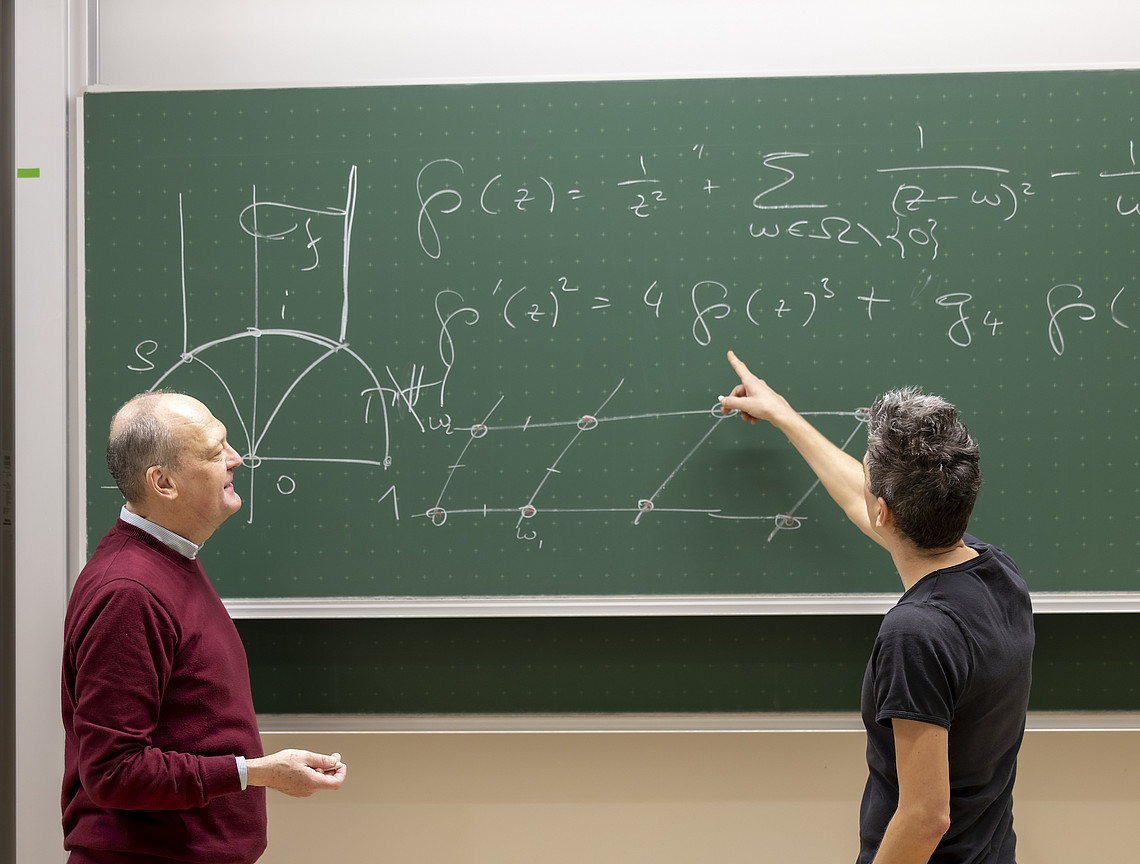Begin of page section: Contents:
NAWI Graz studies in the field of mathematics
Imaging procedures in medicine and technology, mobile communication, methods based on artificial intelligence, encryption in data transfer, risk management in banking and insurance, computer-aided procedures in science and technology are essential, almost self-evident tools in modern everyday life. However, hardly anyone is aware that such technologies would not be possible without the use of current, innovative methods from a wide range of mathematical disciplines.
The Bachelor's degree programme in Mathematics provides a solid basic education in those mathematical areas that are of particular importance for professional activities in industry, business and science. In addition, students have the opportunity to choose a suitable specialisation catalog to set their own individual focus. This degree program provides the basis for further scientific or application-oriented training from the wide range of subject-related Master's programs both in Graz and internationally.
In addition, there is close contact between lecturers and students throughout the Mathematics degree programme. The ability to work in a team is promoted through close cooperation between students.
In the first four semesters, students receive a broad basic education in essential core areas of mathematics. From the fifth semester onwards, students choose a specialization to focus on:
- Applied Mathematics: advanced topics in mathematical modeling, stochastics, numerical mathematics, differential equations and their applications.
Data Science: Knowledge of statistical data analysis and machine learning, introduction to signal and image processing and combinatorial
optimization, as well as applications of data-based mathematical modelling in various areas of application.- Discrete mathematics and algorithm theory: Advanced topics in algebra, discrete mathematics, optimization and theoretical computer science and their applications.
- Financial and actuarial mathematics: Advanced topics in stochastics and differential equations and their implementation in basic models of financial and actuarial mathematics.
- Technomathematics: Advanced topics in differential equations and numerical mathematics, basic knowledge of mechanics and electrical engineering.
Link to the curriculum
Techniques from a wide range of mathematical fields are needed to meet the challenges of numerous applications: Mathematical imaging improves diagnostic accuracy in life sciences and engineering and has become an indispensable tool for complex operations. Telecommunications and modern payment methods pose difficult problems for data encryption. Changes in the economy require new approaches to risk management in the financial and insurance sectors. Analytical and computer-aided techniques enable the analysis and simulation of mathematical models of ever-increasing complexity in the natural sciences, life sciences, economics and engineering.
The NAWI Graz Master's degree programme in Mathematics offers the opportunity to specialize in one of the following areas:
- Applied Mathematics
- Discrete Mathematics
- Financial and actuarial mathematics
- Statistics and Operations Research
- Technomathematics.
Link to the curriculum (courtesy translation)
Nowadays, a considerable amount of data is collected and analyzed in every area of life. This opens up enormous opportunities for society, business and research. Technologies such as artificial intelligence and machine learning have become an integral part of the digital landscape.
As the size and complexity of data sets increases, so does the demand for specialists who are able to manage, analyze and interpret this data. As a data scientist, you will use mathematical and computer science techniques to process data effectively and thus make a decisive contribution to shaping our digital future.
The Master's programme in Data Science teaches you the skills and methods required to analyse, process and interpret large volumes of data.
Specific information on the programme can be obtained from here.
Link to the curriculum (courtesy translation)
End of this page section. Go to overview of page sections
End of this page section. Go to overview of page sections


